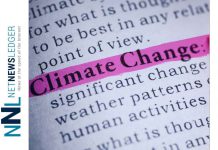PARIS – World leaders in Paris have started working at the COP 21 Climate Conference. Delegations from governments, non-governmental organizations and concerned individuals are attending the conference.
Assembly of First Nations (AFN) National Chief Perry Bellegarde and other chiefs and delegates will attend the 21st Conference of the Parties (COP 21) on the United Nations Framework Convention on Climate Change (UNFCCC). The National Chief will attend a portion of the conference and work to ensure the rights, priorities and knowledge systems of First Nations are respected and included in the deliberations.
“Indigenous peoples are the first to experience the impacts of climate change and our voices and our recommendations must be heard at COP 21,” said National Chief Bellegarde. “Climate change is affecting our peoples, our territories and our rights. We will put forward solutions that combat climate change and give life to First Nations rights to our lands, territories and resources. All states recognize that any international agreement must be made with the full and effective participation of First Nations and Indigenous peoples. We will be there to ensure First Nations have a strong voice and that outcomes recognize and respect the rights of our peoples.”
National Chief Bellegarde was invited along with the Premiers to be part of Canada’s official delegation to COP 21 by the Honourable Catherine McKenna, Minister of Environment and Climate Change. The parties at COP 21 will work on a global instrument to address climate change. The discussions will involve many issues of critical importance to First Nations. The National Chief noted the UN Declaration on the Rights of Indigenous Peoples and the World Conference on Indigenous Peoples both call for the full and effective participation of Indigenous peoples in UN processes. The National Chief will be in Paris, France from Friday, November 27 to Monday, November 30. AFN Northwest Territories Regional Chief Bill Erasmus is also attending COP 21, and AFN Manitoba Regional Chief Kevin Hart is attending as a member of the Manitoba Delegation.
“Indigenous peoples governments, traditional knowledge of the environment – stewardship, climate and weather patterns, knowledge of the lands and waters – is recognized in the international community through instruments such as the UN Declaration on the Rights of Indigenous Peoples,” said AFN Regional Chief Bill Erasmus. “This knowledge can be used in monitoring, assessing and mitigating the impacts of climate change. We know climate change is impacting our peoples and our lands. We want to ensure that approaches to address climate change do not further negatively impact our rights. We have an opportunity to work with Canada and other states to come to agreement on the future concerning climate change and global warming.”
COP 21, also known as the 2015 Paris Climate Conference, is the first time in more than 20 years of UN negotiations that the parties will work to achieve a universal agreement on climate change. The conference is expected to attract close to 50,000 participants including 25,000 official delegates from government, intergovernmental organizations, UN agencies, NGOs and civil society. To visit the official COP21 website for more information: http://www.cop21.gouv.fr/en






